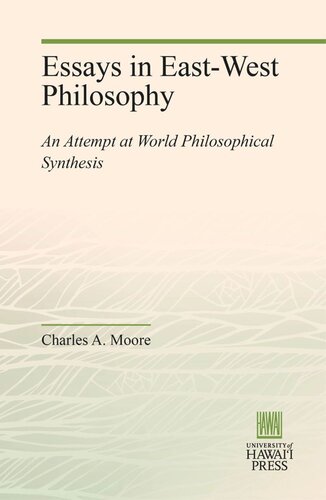

Most ebook files are in PDF format, so you can easily read them using various software such as Foxit Reader or directly on the Google Chrome browser.
Some ebook files are released by publishers in other formats such as .awz, .mobi, .epub, .fb2, etc. You may need to install specific software to read these formats on mobile/PC, such as Calibre.
Please read the tutorial at this link: https://ebookbell.com/faq
We offer FREE conversion to the popular formats you request; however, this may take some time. Therefore, right after payment, please email us, and we will try to provide the service as quickly as possible.
For some exceptional file formats or broken links (if any), please refrain from opening any disputes. Instead, email us first, and we will try to assist within a maximum of 6 hours.
EbookBell Team

4.4
72 reviewsIn the modern world, provincialism in reflective thinking is dangerous, possibly tragic. If philosophy is to fulfill one of its main functions - that of guiding the leaders of mankind toward a better world - its perspective must become worldwide and comprehensive in fact as well as in theory. This, the motivating theme of the Second East-West Philosophers' Conference held at the University of Hawaii in the summer of 1949, is likewise the theme of this volume, the complete report of that Conference.
The goal of the eminent philosophers participating was the discovery of avenues of progress toward a synthesis of Oriental and Occidental thought. They attempted to reach tentative conclusions in the fields of methodology, metaphysics, and ethical theory.
Conference activities consisted of meetings, lectures, discussions, undergraduate courses, and graduate seminars. As far as possible, the proceedings were limited to the study of East-West philosophy; extensive attention was not given to the strictly religious aspects of any philosophical tradition.
Participants in the Conference were convinced that philosophy is now entering upon a new stage of development which will be characterized by trans-cultural cooperation and world perspective. This development can be of tremendous significance in world thought and eventually in the lives and actions of the people of the world.
Twenty-three of the formal papers presented at the Conference comprise the substance of this book; a significant proposal for synthesis is stated or implied in almost every one. A comprehensive introduction by the editor, a summary of the results and conclusions of the Conference seminars, a who's who of contributors, and an exhaustive index round out the volume.